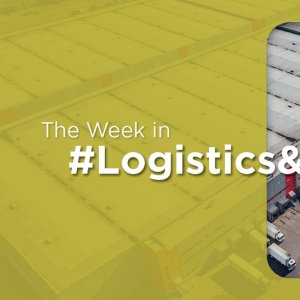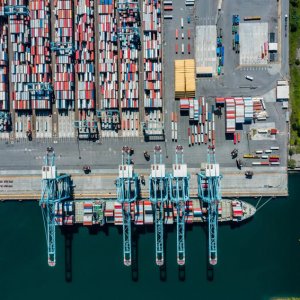Niche Specialization Generates Logistics Success

Niche Specialization Generates Logistics Success

STORY INLINE POST
Q: What makes WePort different from other logistics operators?
JW: One of WePort’s main differentiating characteristics is that we are a group of young founders with experience in the industry and knowledge of the logistics sector. We combine this with the customs agency business, providing door-to-door services in which clients have exact information at the most critical moment at competitive costs. This helps our clients obtain a real yield from having their products in the Mexican or international markets.
RR: Another differentiator can be found in the niches in which we operate. As a customs brokers and freight forwarders, we can work in all industries but we have chosen to grow and set our brand in certain niches. We are in that stage where companies are already starting to contact us because they know that we work with their competitors and that we know how to get the job done. An interesting niche in which we are working is heavy machinery for construction, which is very competitive. We already work with two of the five largest players in the sector. Another industry in which we are working is the floor coatings segment, where we manage 13 percent of the marble and granite that enters the country; among other sectors or industries that we are currently working.
Unlike large forwarders and other customs agencies that look for larger volumes, we focus on maintaining a smaller size where we can control customer care, which we believe is a key differentiator for companies.
Q: In which other niches is WePort trying to position as a top industry player?
JW: Automotive and energy are among the strongest industries in Mexico. However, this does not limit our capability to participate in the fashion and shoe industries, which are also very complex. Still, the industries that generate the most interest for us are those that have a constant influx of products and a large internal structure. For instance, the automotive industry has a supply chain that ranges from Tier 1 companies to Tier 3 companies, and a significant number of companies participate in the operations of every OEM. This generates a lot of ground for participation in a complex industry that demands on-time deliveries. A significant challenge for logistics companies is related to having the capabilities to provide the just-in-time service the automotive industry requires. We need to have all the necessary certifications to provide this service.
Q: What opportunities does the implementation of new technologies like blockchain offer logistics operators and how does WePort participate in this transition?
RR: We definitely need to incorporate new technologies. However, there is yet to be a success case using blockchain for logistics services. Still, blockchain is just one of the many tools that technology offers. By 2030, if we do not start depending more on computers and less on people, we will have large operations depending on human capital, which is the complete opposite to what will happen in the US and Europe. In Mexico, the growth of customs agencies depends on the number of people they have working for them, while in other countries they experience double-digit growth but they still have the same workforce. This is because they are more advanced in the implementation of technology processes. In Mexico’s customs business, we are still very offline and depend heavily on human capital, the cost of which will take a big toll on companies in 10 years.
Q: What is needed to force a technology transformation?
JW: The largest challenge we are perceiving comes from the user perspective, given that the user lacks a technology culture. The technological elements that are implemented within the company can sometimes fail because the user does not accept them.
RR: Import and export departments in companies are still run by an older generation. Inasmuch as new generations take over this leadership, they will be the ones demanding the implementation of new technologies. Today, the challenge we have is to convince the sales managers of multinational companies that they have to work using a program and not with email or phone calls. For these people, it is sometimes hard to understand that and they are reluctant to change the way they work.
For instance, WeTrack is a CRM we developed. It is well-designed and works perfectly, but our everyday challenge is to promote the use of it with our external clients. In the same way we order food or a car from an app, in a few years we are going to order the collection of merchandise through an app. It is harder to move people than to move cargo, and today people are already moving using apps. When it comes to data, the logistics industry here has none. Mexico is still a very closed country in terms of data. Even countries like Peru and Chile have become pioneers in terms of data for logistics.
We provide what our clients need. We can adjust our service communication based on our developed CRM but we also use the common tools for communication and cargo tracking; it all depends on the client needs, the size of the import/export department and the investment of time our customers promote the use of better logistics platforms.
WePort is a Mexican logistics and customs operator that provides solutions across the entire supply chain. Its services include sourcing and trading, cargo insurance, freight forwarding, customs, ground transportation and storage and consolidation.








 By Gabriela Mastache | Senior Journalist and Industry Analyst -
Thu, 06/04/2020 - 17:11
By Gabriela Mastache | Senior Journalist and Industry Analyst -
Thu, 06/04/2020 - 17:11















